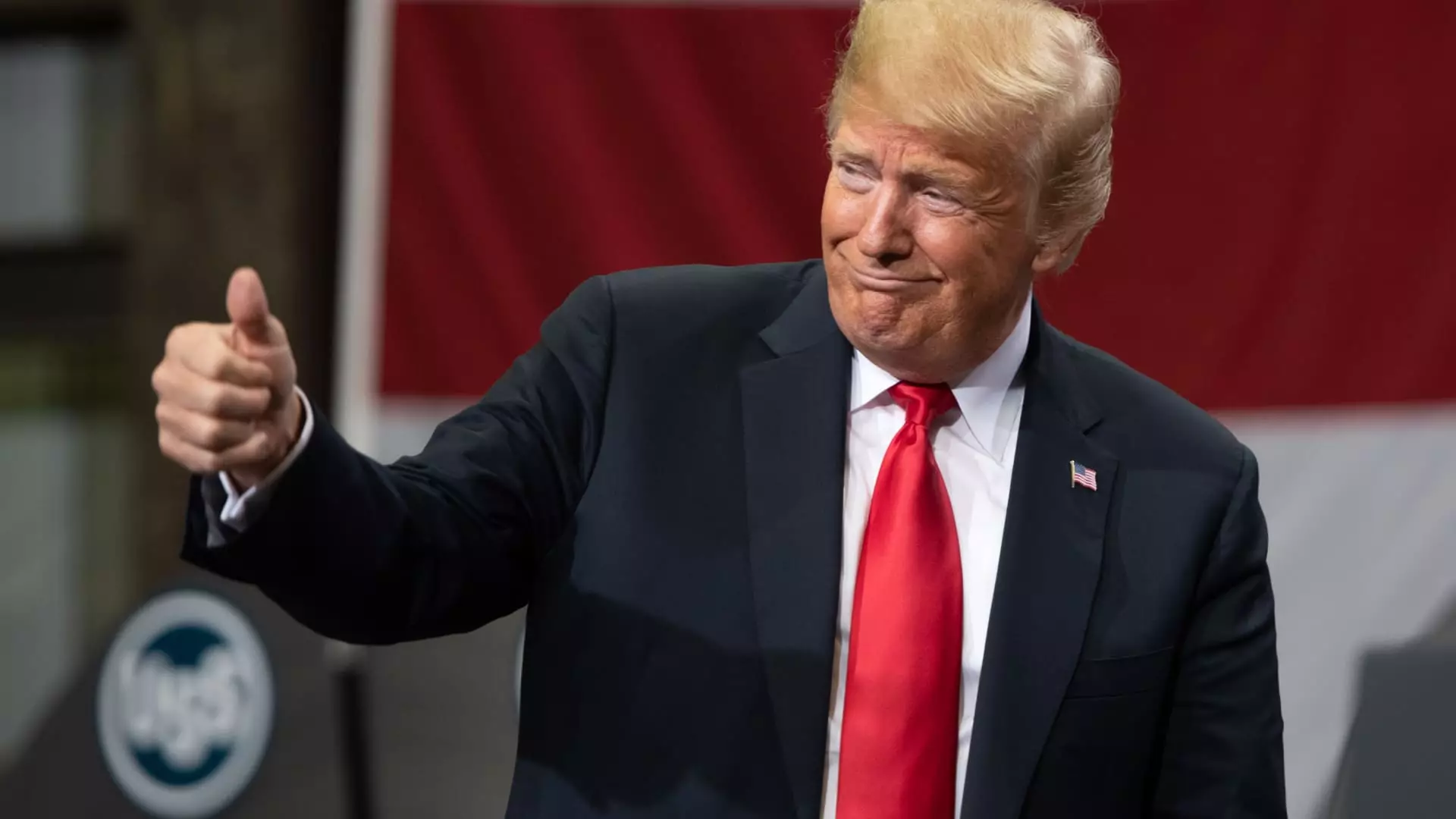Markets are often perceived as governed by rational analysis and well-calculated moves. However, the recent stock market events have illuminated how significantly rhetoric—even from high-profile figures—can sway investor decisions. The latest instance involves former President Donald Trump’s outspoken and impulsive tweet urging people to buy stocks, which led to a remarkable surge in the market after he announced a rollback of tariffs. Such actions unveil the often chaotic intertwining of politics and economics, suggesting that much of the market’s fluctuations could be attributed to whims rather than sound financial principles.
At precisely 9:37 a.m. ET on the day in question, President Trump posted a bold proclamation on Truth Social: “THIS IS A GREAT TIME TO BUY!!!” Backed by the power of his position, this statement quickly manipulated stock prices and ignited a feeding frenzy among investors. This episode presents an uncomfortable reality—those who viewed the message as prudent investment advice likely had their financial intuition overridden by the thrill of rapid gains. The essence of investment should be autonomy and discernment, yet it appears that a mere suggestion from a public figure can overshadow educated choices, creating a risky environment of emotional trading.
The Timing of the Turnaround
Moments after Trump’s dramatic post, the market witnessed an almost instantaneous reaction. For instance, the SPDR S&P 500 ETF Trust (SPY) saw an 11% increase from the time of Trump’s announcement. If investors had acted promptly on his advice, a hypothetical $1,000 investment would have generated around $1,110 by the session’s peak. While such gains may appear monumental in the heat of the moment, the underlying question persists—can one build a sustainable investment strategy on the unpredictability of political rhetoric?
Though some opportunists may have reveled in windfall profits on this occasion, longer-term investors should be concerned about the precarious nature of such reliance on public figures’ whims. Indeed, the volatility observed is a testament to the erratic behavior of markets influenced by sentiment, which can result in bubble-like conditions that ultimately benefit few while exposing many to the risk of losses.
The Phenomenon of Targeted Stocks
Trump’s stock—the one associated directly with him, Trump Media & Technology—offers a case study in how personal involvement and perception can lead to inflated stock values. Following Trump’s endorsement, shares surged by approximately 22.2%. It underscores a troubling reality—that investment can sometimes veer into the absurd, where blind adherence to personality power overtakes rational analysis of company potential. In stark contrast to what investment literature advocates—thorough research and sensibility—this phenomenon promotes a dog-eat-dog mentality fueled by hype.
Meanwhile, companies such as Tesla have become entangled in this saga, reflecting both admiration and ire towards the interplay of business and government. Tesla, too, experienced a staggering rise in stock value, yet investors should ask whether the sustainability of such spikes is tied to solid fundamentals or mere news cycles. When data-driven assessments take a backseat to sensationalism, the overall integrity of market investments comes into question.
Online Communities: The Voices of Choice or Herd Mentality?
In the backdrop of these dramatic market swings are online communities like Reddit’s WallStreetBets, where both seasoned traders and novices converge. From users labeling themselves “psychic” after acting on market insights gleaned from news cycles to accusations of market manipulation involving Trump’s tweet, it’s clear that the digital age has given rise to a mixture of instinctual trading and groupthink. This duality presents a concern; while being in touch with broader perspectives can be beneficial, there’s also the danger of collective hysteria that propels investors into making irrational, knee-jerk decisions.
The concept of insider trading looms large here, with accusations echoing through digital forums. Many users expressed frustration at how readily Trump’s actions could be likened to using one’s influence for market manipulation. The inherent lack of transparency fosters distrust, and when informal networks of information can trump analytical assessments, one must ponder whether we are dancing on the edge of a broader financial crisis rooted in misinformation.
As we reflect on these events, the lessons become increasingly clear: while short-term windfalls may entice, thoughtful investing informed by principles and fundamentals must remain paramount, lest we, as a society, find ourselves ensnared in the unpredictable tides of public sentiment and political theater.


Leave a Reply